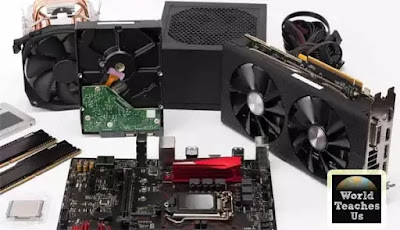CAD:- Computer Assisted Design
DVI:- Digital Visual Interface
FTP:- File Transport Protocol
LCD:- Liquid Crystal Display
LED:- Light Emitting Diode
NTP:- Network Time Protocol
PDF:- Portable Document Format
RAM:- Random Access Memory
ROM:- Read Only Memory
SMS:- Short Message Service
VGA:- Video Graphics Array
GHz:- Gigahertz
GUI:- Graphical User Interface
MHZ:- Megahertz
PC:- Personal Computer
OS:- Operating System
v Types of window operating system
BIOS:- Basic Input Output System
BOS:- Batch Operating System
DOS:- Distributed Operating System
MOS:- Multiprogramming System
MTOS:- MultiThreading
Operating System
MUOS:- Multi-User Operating System
MPOS: - Multi-Processing Operating System
NOS: - Network Operating System
RTOS: - Real-Time Operating System
TSOS: - Time Sharing Operating System
ALU: - Arithmetic Logic Unit
COM: - Component Object Model
HTTPS: - HyperText Transfer Protocol Secure
ISP: - Internet Service Provider
IP:- Internet Protocol
LAN: - Local Area Network
MAN: - Metropolitan Area Network
URL: - Uniform Resource Locator
WWW: - World Wide Web
WAN: - Wide Area Network
WLAN: - Wireless Local Area Network
 |
| Machine Parts |
ASCII: - American Standard Code for Information Interchange
CSS: - Cascading Style Sheets
JS: - Java Script
HTML: - HyperText Markup Language
HLL: - Higher Level Language
LLL: - Low-Level Language
ORACLE: - Oak Ridge Automatic Computer and Logical Engine
PHP: - HyperText PreProcessor
SQL: - Structured Query Language
VRML: - Virtual Reality Mark-up Language
ALT: - Altern Ate
CTRL: - Control
ESC: - Escap
F: - Function
NUM: - Numeric
CD: - Compact Disk
CPU: - Central Processing Unit
DVD: - Digital Versatile Disk
HDD: - Hard Disk Drive
PSU: - Power Supply Unit
SSD: - Solid State Drive
USB: - Universal Serial Bus
.COM:- Commercial Internet Sites
.GOV:- Government
.IN:- India
.NET:- Internet Administrative
Sites
.ORG:- Organization Site
GB :- Giga
Byte
|
1024 MB= 1 Giga Byte
|
KB :- Kilo
Byte
|
1024 Bytes= 1 Kilo Byte
|
MB :- Mega
Byte
|
1024 KB= 1 Mega Byte
|
TB :- Tera
Byte
|
1024 GB= 1 Tera Byte
|
PB :- Peta
Byte
|
1024 TB= 1 Peta Byte
|
EB :- Exa
Byte
1024 PB= 1 Exa Byte
|
My view about this post
This is a short form of computer. Which can be useful to people in everyday life rather than using a computer. People in computer science need to use this and remember it. So remembering these 9 things makes them know a lot and it can be a success in this field, so read this and remember it. You may know a lot of them and some may not, so remember to read what they do not know.Related Link
- https://lifehacker.com/top-10-simple-things-every-computer-user-should-know-ho-5941496
- https://www.focus.net.nz/blog/category/general/9-easy-computer-things-everyone-should-know-how-to-do
FAQ On Page Check List
1. What is a computer shortcut key?
Answer: Everything we operate on the screen without a mouse is called
a Computer Shortcut Key. That is, we operate this screen through the keyboard.
2. Computer shortcut key to shutdown?
Answer: This is the shortcut key for the shutdown of the computer ALT+F4.
3. Computer shortcut key in Hindi.
Answer: There are too many shortcut-keys. It is better if we
understand it in English.
4. Shortcut key to use the computer without
mouse
Answer: There are many shortcut keys that can be used without a
mouse. Like this is the key to turn off the computer is ALT+F4. Like this is
the key to copy something CTRL + C. Like this is the key to paste something
CTRL + V. Such as using a number with a Window key to open an icon in the task
manager.


It's Very Important Note,
ReplyDeleteThank you.
Post a Comment
Please do not enter any spam link in the comment box.